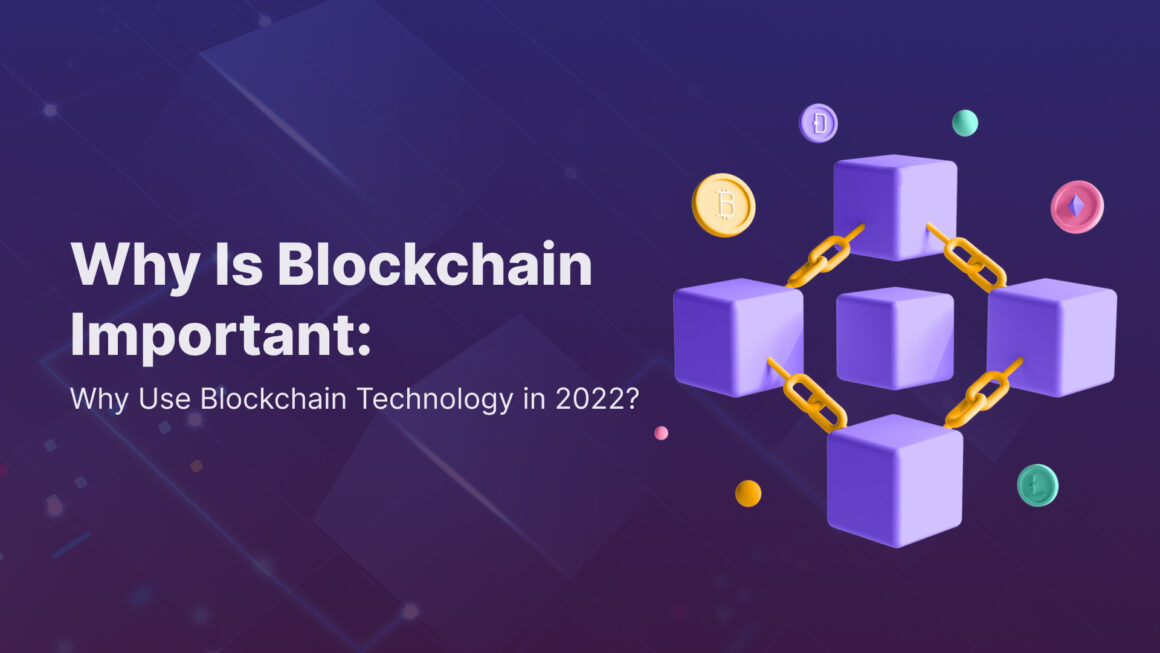Blockchain as an algorithm appeared more than 10 years ago. In literal meaning, the word blockchain stands for ‘chain of blocks.’ Due to the many advantages of this technology over traditional algorithms, it is already being used in many areas.
Moreover, most people do not even suspect that they are already using blockchain technologies — for example, when paying for tuition at some universities, buying digital art objects, or investing in real estate. Let’s figure out why we need a blockchain and consider all the benefits it gives!
How It Worked Before Blockchain Technology
First, let’s look at history. To understand why we need a blockchain, we need to understand its role in the modern world. It’s no secret that the Global Network has significantly influenced the economy and the way of doing business. It stores and processes information and implements investment projects.
It is safe to say that almost all information flows through the World Wide Web. The fall of this system will lead to collapse — the chains of production and consumption of goods, entertainment platforms, political campaigns, social networks, and much more will stop working.
Now you need to understand how the Internet works. The network is a collection of nodes. Their role is played by servers, supercomputers, and data storage systems. Consumers are connected to the nodes via smartphones, PCs, or tablets. The nodes themselves can connect to each other, providing access to remote points of the World Wide Web.
The described method of organization has several features:
-
- firstly, users do not participate in data storage;
-
- secondly, node destruction leads to data loss;
-
- thirdly, there is no data verification, so it is possible to change and destroy it.
Let’s assume a bank’s server stores information about customers and transactions. One day, hackers attack a server connected to the Internet. As a result, information about the amount of money in the accounts is lost. Probably everyone has experienced failures in the operation of banks. They lead to the loss of funds from a card, which then need to be restored according to a special procedure.
What About Blockchain?
Blockchain completely changes the approach to data storage and verification. In the traditional Internet, this task is assigned to the nodes. At the same time, a different algorithm operates in a blockchain. Each computer in the system stores absolutely all information about a chain. Naturally, it is located on the nodes of users in encrypted and compressed form.
There are no centralized nodes; that is, the conditional ‘database’ is stored not on one server but on each user’s PC. Therefore blockchain is also called distributed registry technology.
How Does Blockchain Work?
Now let’s see why the registry is distributed between nodes and how it helps to protect information. You also need to understand how the whole system functions without centralized control.
Computers are connected to each other in a network using existing communication channels. To participate in a blockchain, you need to install specialized software on your device. Simultaneously with its initialization, a file with information about the entire blockchain is downloaded to the hard disk.
Computers’ negotiate’ among themselves using a ‘protocol.’ It can be different depending on the blockchain algorithm. In simplified form, it looks like this. A new block appears in the network every hour (minute, second). It contains data on transactions made during this time. In addition, it contains encrypted data, a hash, of the previous block, which is why a ‘chain’ is formed.
After registration, the blocks become available to users and also receive the following features:
-
- a block cannot be deleted; you can only add an additional one;
-
- if you need to cancel a transaction, it is recorded again with new metadata;
-
- hacking a single block is impossible, as this will change a hash and destroy a chain.
Please note that blockchain cannot be deleted or suspended. The only way is to destroy absolutely all nodes in a distributed network. In practice, this cannot be done.
Why Is Blockchain So Important?
Well, it is still not clear what benefits blockchain gives to ordinary people — for example, a messenger user or a buyer of goods on the Internet.
When compared with the traditional centralized Internet, the difference is obvious. Now a person, company, or state can control the servers, so they have the opportunity to dictate their own rules and, accordingly, influence the whole world or individual areas.
For example, you can simply block access to the Telegram or WhatsApp servers to restrict communication. To create a panic on a crypto exchange, you only need to disrupt the operation of its servers. To ruin a person, it is enough to reset their account. Since the server is under control, such changes may remain unnoticed. After all, third parties will not have access to the ‘log files.’
Imagine what will happen to the economy! After all, more than 90% of the world’s money is just zeros and ones on banks’ servers. Thus, the entire world economy is in the hands of the owners of financial institutions. This is an approximate analogy, but it illustrates the problem well.
In a blockchain, each participant has their own copy of the database. If you try to make changes to existing nodes, they simply will not pass verification and will be replaced with the correct ones, so falsifying information or removing it will not work. This is the revolution that everyone is talking about.
Conclusion
Blockchain should be considered more than just a tool for creating cryptocurrencies. The possibilities of this technology are practically unlimited. For example, it is already used in education, medicine, and information technology. NFTs that protect copyrights on the Internet also work on blockchain. And this is just the beginning.

Leave a Reply